Guns, Germs and Steel: A short history of everybody for the last 13,000 years
Why did history unfold so differently across continents, and what silent forces shaped the fate of entire civilizations? Guns, Germs and Steel is a sweeping, sobering detective story of humanity’s uneven march through time—where geography, biology, and chance played far greater roles than genius or will. In tracing the roots of global inequality not to culture or intellect but to crops, microbes, and metal, it overturns long-held myths with unflinching clarity. This is not just a chronicle of conquests, but a meditation on the fragile accidents that shaped the modern world. What if the seeds of dominance were sown in the soil itself?
- Originally Published: 1997
- Publisher : Vintage, 2017
- Pages: 580
- Genre: Non-Fiction
- Book Type: Hardcopy
- ISBN-13: 978-0099302780
- Access: Members
Description
Winner of the Pulitzer Prize • New York Times Bestseller • Over Two Million Copies Sold
“One of the most significant projects embarked upon by any intellectual of our generation” (Gregg Easterbrook, New York Times), Guns, Germs, and Steel presents a groundbreaking, unified narrative of human history.
Why did Eurasians conquer, displace, or decimate Native Americans, Australians, and Africans, instead of the reverse? In this “artful, informative, and delightful” (William H. McNeill, New York Review of Books) book, a classic of our time, evolutionary biologist Jared Diamond dismantles racist theories of human history by revealing the environmental factors actually responsible for its broadest patterns.
The story begins 13,000 years ago, when Stone Age hunter-gatherers constituted the entire human population. Around that time, the developmental paths of human societies on different continents began to diverge greatly. Early domestication of wild plants and animals in the Fertile Crescent, China, Mesoamerica, the Andes, and other areas gave peoples of those regions a head start at a new way of life. But the localized origins of farming and herding proved to be only part of the explanation for their differing fates. The unequal rates at which food production spread from those initial centers were influenced by other features of climate and geography, including the disparate sizes, locations, and even shapes of the continents. Only societies that moved away from the hunter-gatherer stage went on to develop writing, technology, government, and organized religions as well as deadly germs and potent weapons of war. It was those societies, adventuring on sea and land, that invaded others, decimating native inhabitants through slaughter and the spread of disease.
A major landmark in our understanding of human societies, Guns, Germs, and Steel chronicles the way in which the modern world, and its inequalities, came to be.
Praise for Guns, Germs and Steel
An epochal work. Diamond has written a summary of human history that can be accounted, for the time being, as Darwinian in its authority.
An ambitious, highly important book.
The scope and the explanatory power of this book are astounding.
No scientist brings more experience from the laboratory and field, none thinks more deeply about social issues or addresses them with greater clarity, than Jared Diamond as illustrated by Guns, Germs, and Steel. In this remarkably readable book he shows how history and biology can enrich one another to produce a deeper understanding of the human condition.
Serious, groundbreaking biological studies of human history only seem to come along once every generation or so. . . . Now [Guns, Germs, and Steel] must be added to their select number. . . . Diamond meshes technological mastery with historical sweep, anecdotal delight with broad conceptual vision, and command of sources with creative leaps. No finer work of its kind has been published this year, or for many past.
[Diamond] is broadly erudite, writes in a style that pleasantly expresses scientific concepts in vernacular American English, and deals almost exclusively in questions that should interest everyone concerned about how humanity has developed. . . . [He] has done us all a great favor by supplying a rock-solid alternative to the racist answer. . . . A wonderfully interesting book.
An epochal work. Diamond has written a summary of human history that can be accounted, for the time being, as Darwinian in its authority.

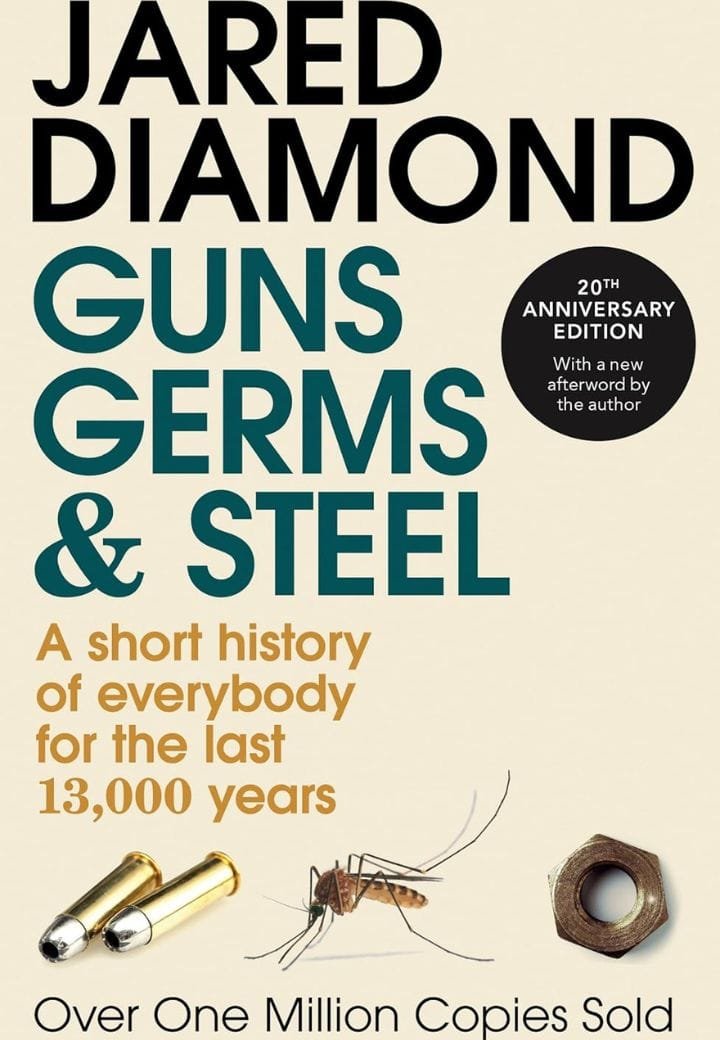
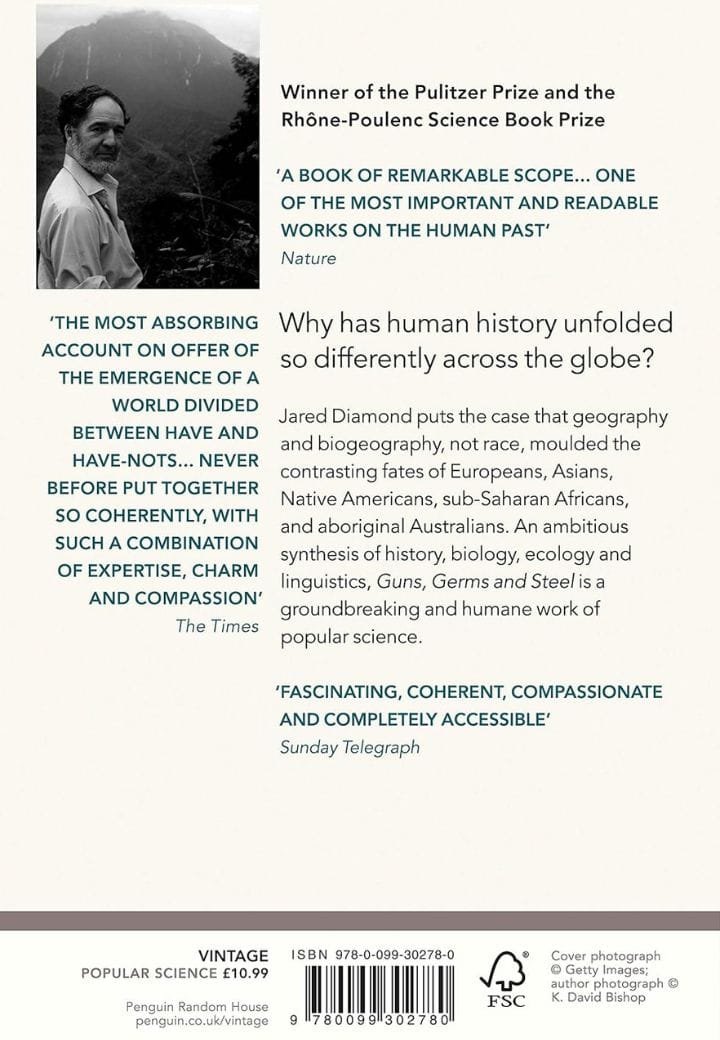
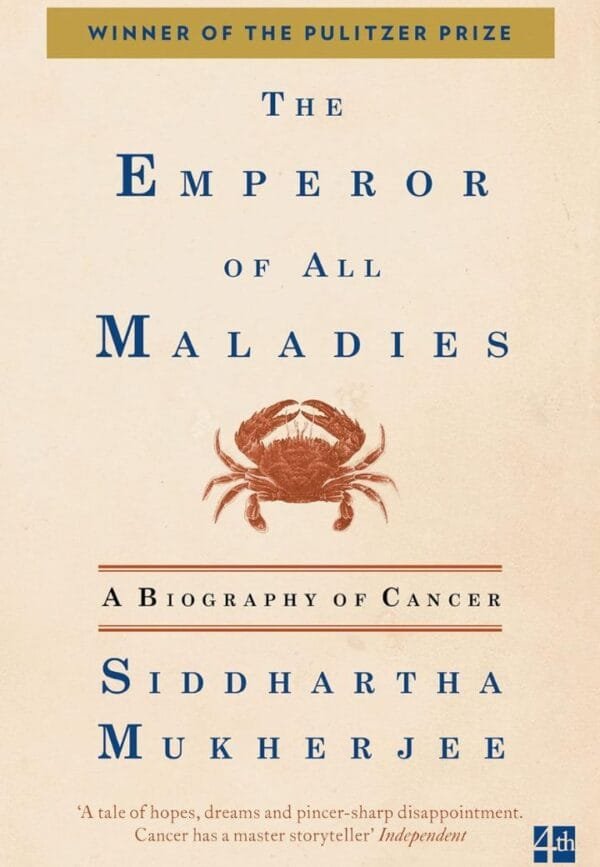
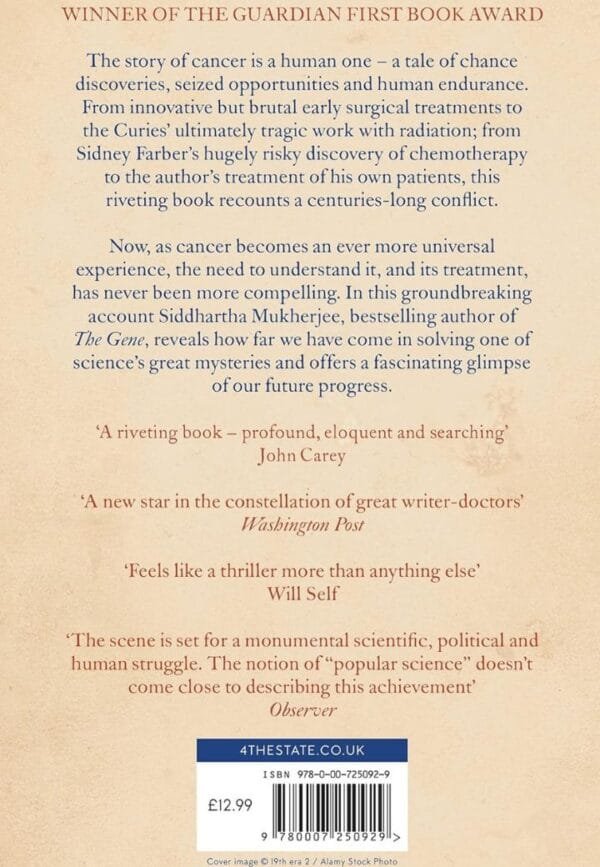



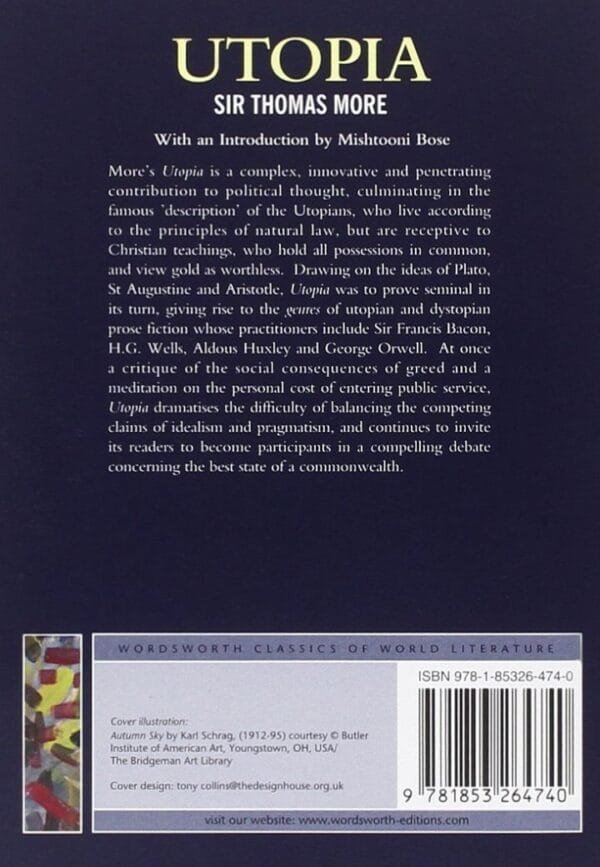
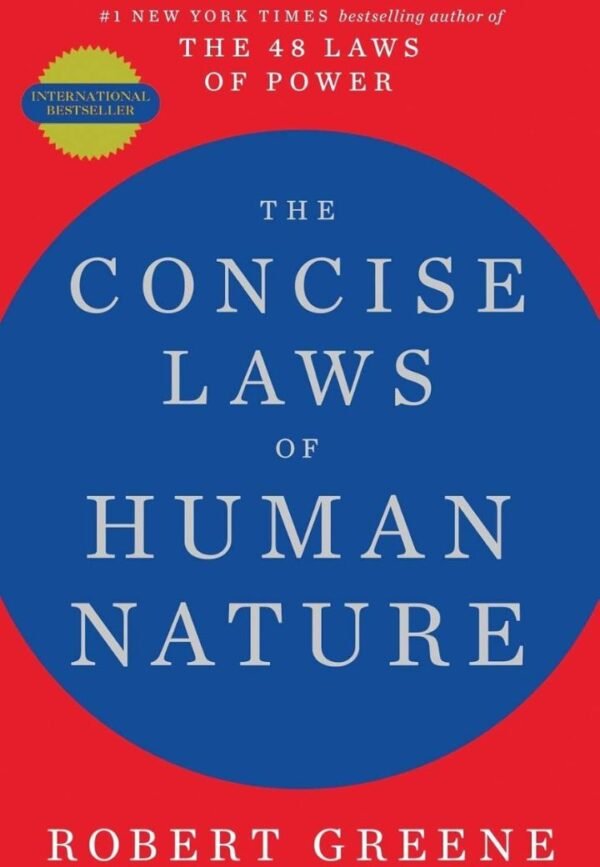


Reviews
There are no reviews yet.